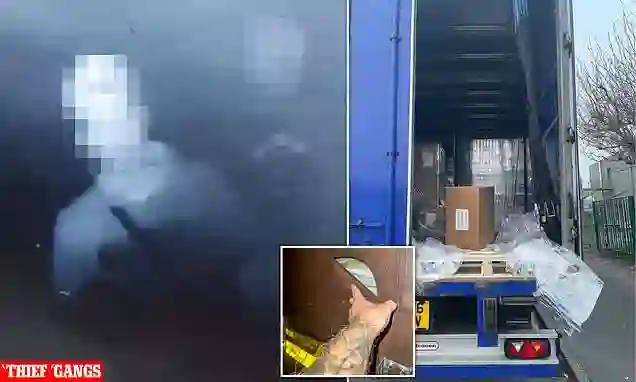Life on the road is getting tougher than ever for Britain’s truck drivers.
Every day, they’re up against criminals who don’t hesitate to attack them, steal their fuel, and raid their cargo — turning simple stops at service stations and lay-bys into dangerous encounters.
These aren’t isolated incidents; this is an ongoing crisis putting thousands of hardworking drivers at real risk.
Terrifying Attacks and Fuel Thefts Become Routine
Richie Lines, a Norwich-based trucker, knows the dangers firsthand.
He shared how thieves on the A1 gas drivers through open windows to knock them out and clean out their trucks without a trace.
Richie once lost a £250,000 shipment of salmon after thieves emptied his trailer and drained his fuel tank in under 9 hours.
His advice? More secure parking with fences and 24-hour patrols — because right now, nowhere feels safe.
The Haulage Industry’s Tough Schedule Adds Pressure
Truckers already face strict regulations, like limited driving hours and tight delivery deadlines.
After grueling s
hifts—sometimes 9 hours a day—drivers often have no choice but to park overnight in unsafe lay-bys when secure spots are full or unavailable. It’s at these vulnerable moments that many fall victim to ruthless thieves.
Organized Crime Rings Target Service Stations and Lay-Bys
In the Midlands, gangs loiter near truck stops by distribution centers, scanning for high-value loads like electronics.
Thieves commonly slash trailers’ curtains in a tactic called a “Smiley” to inspect cargo before raiding it, causing costly damage and huge delays.
Meanwhile, “Diesel Fairies” siphon hundreds of litres of fuel, sometimes drilling holes in tanks when caps are locked.
Drivers Armed With Baseball Bats and Vigilance
Many drivers, like 53-year-old Dave Morgan, carry makeshift weapons for self-defense.
He described how criminals sneak onto trucks through sunroofs, spray gas to knock out drivers, and steal fuel and belongings.
Despite reporting crimes to police, many drivers feel the response is minimal — usually just a crime number and no follow-up.
Firsthand Stories of Violence and Theft
Jason Leake, a popular trucking influencer, told of a driver on the A303 who was attacked when thieves tried to siphon fuel while he was briefly out of his cab.
Videos circulate online of drivers confronting thieves, only to see them escape with stolen fuel.
The crime is widespread, and the punishments for offenders remain light, leaving drivers feeling unprotected.
Fuel Theft and Cargo Raids Hit Drivers Hard
Tom from Hull shared how thieves broke his diesel cap and stole 100 litres of fuel, sometimes resorting to puncturing tanks — an expensive fix beyond just the fuel lost.
Entire shipments of pharmaceuticals and other valuable goods have vanished from trailers, forcing drivers to constantly watch their backs.
Truckers Use Social Media to Warn Each Other
With official protection lacking, drivers turn to Facebook groups and forums, sharing videos, photos, and crime hotspots to keep each other safe.
Pedro Pinheiro, a Portuguese trucker in Kent, stresses the importance of parking only in secure lots, even if it costs more — a lesson many have learned the hard way.
Security Operators Step Up but Challenges Remain
David Morgan, who runs a secure truck stop near Folkestone, has invested in cameras, alarms, and floodlights to protect his 32-vehicle parking lot.
He contrasted his site with unsecured lay-bys nearby, where fuel theft and curtain slashing are rampant, often carried out by local groups.
Industry Calls for Government Action on Freight Crime
The Road Haulage Association is pushing MPs to get serious about freight crime ahead of new legislation.
With over £1 billion lost to crime since 2020 and 11,000 safe parking spots missing nationwide, industry leaders say truckers deserve protection.
Richard Smith of the RHA highlights how drivers are often forced to park in vulnerable, isolated locations, making them easy targets for gangs.
